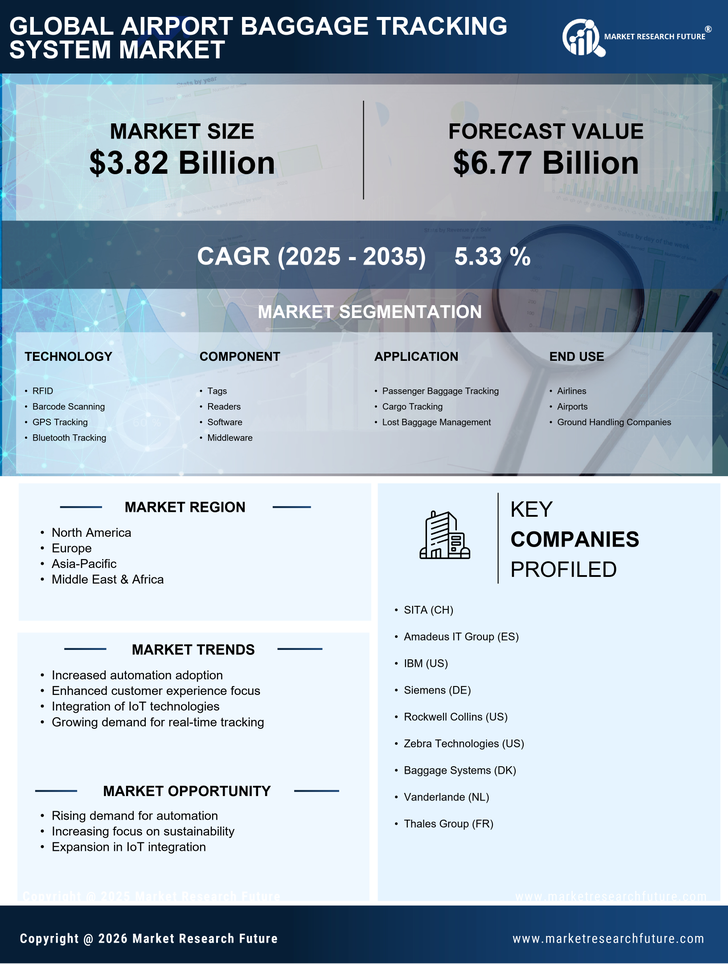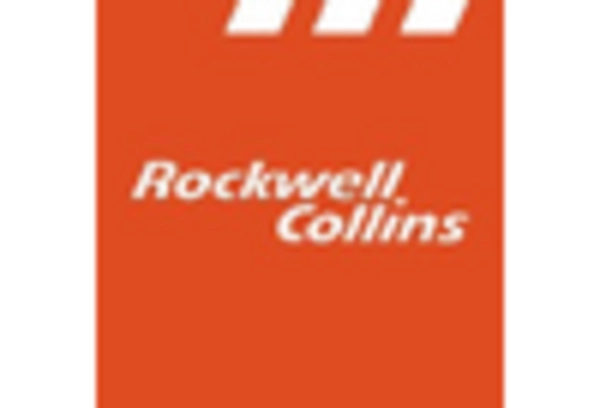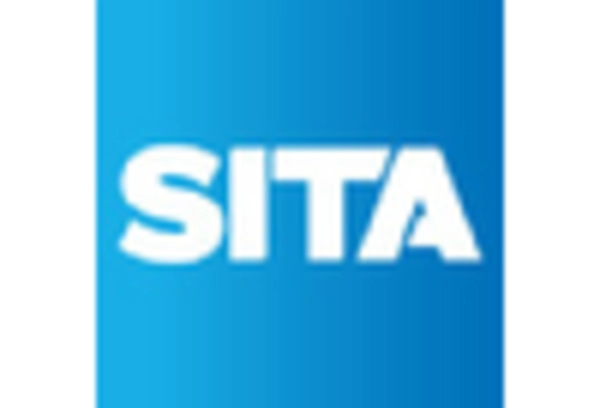Focus on Enhancing Customer Experience
In the Airport Baggage Tracking System Market, there is a pronounced focus on enhancing customer experience. Airlines and airports recognize that providing passengers with real-time updates on their baggage status can significantly improve satisfaction levels. As a result, many stakeholders are investing in user-friendly tracking applications that allow travelers to monitor their luggage seamlessly. This trend is supported by data indicating that 70% of passengers prefer airlines that offer such tracking capabilities. The emphasis on customer experience is likely to drive innovation and investment in the baggage tracking sector, contributing to the overall growth of the market.
Regulatory Compliance and Safety Standards
The Airport Baggage Tracking System Market is influenced by stringent regulatory compliance and safety standards imposed by aviation authorities. These regulations mandate that airlines and airports implement effective baggage tracking solutions to ensure passenger safety and security. As a result, there is a growing need for advanced tracking systems that meet these regulatory requirements. The market is likely to expand as stakeholders invest in technologies that not only comply with regulations but also enhance the overall security of baggage handling processes. This compliance-driven demand is expected to propel market growth in the coming years.
Increasing Demand for Operational Efficiency
In the Airport Baggage Tracking System Market, there is a growing emphasis on operational efficiency. Airlines and airports are under pressure to streamline their processes and reduce costs. Implementing advanced baggage tracking systems allows for better resource allocation and minimizes delays caused by lost or mishandled luggage. According to recent data, airports that have adopted these systems report a reduction in baggage mishandling rates by up to 30%. This trend indicates a strong market potential as stakeholders seek to enhance their operational capabilities while improving the overall passenger experience.
Rising Passenger Traffic and Air Travel Demand
The Airport Baggage Tracking System Market is poised for growth due to the rising passenger traffic and increasing demand for air travel. As more individuals opt for air travel, the volume of baggage handled at airports is also on the rise. This surge in passenger numbers necessitates the implementation of efficient baggage tracking systems to manage the increased workload effectively. Recent statistics indicate that air travel demand is expected to grow by approximately 4% annually, further driving the need for advanced tracking solutions. Consequently, the market is likely to witness substantial growth as airlines and airports adapt to these changing dynamics.
Technological Advancements in Tracking Systems
The Airport Baggage Tracking System Market is experiencing a surge in technological advancements, particularly with the integration of RFID and GPS technologies. These innovations enhance the accuracy and efficiency of baggage tracking, reducing the likelihood of lost luggage. As airlines and airports adopt these technologies, the market is projected to grow significantly, with estimates suggesting a compound annual growth rate of over 15% in the coming years. The ability to provide real-time tracking information not only improves operational efficiency but also enhances customer satisfaction, as travelers can monitor their baggage status throughout their journey.
















